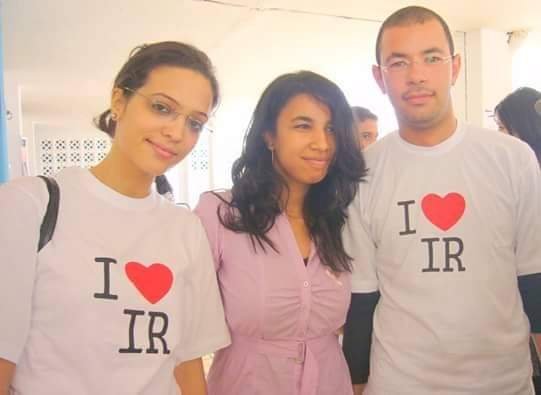Wissem Boudriga’s work would be poorly understood, if known at all, by the children of Tunisia that Care for 24 hopes to reach. The new Care for 24 Advisory Board member is Deputy Head of Mission for Tunisia Embassy in Sweden, which also handles his country’s political, economic, and cultural relations with Denmark.
Care for 24 aims to open the eyes of young Tunisians to new career opportunities through education. It was education that prepared Boudriga for diplomatic service: in 2011, he earned his Bachelor’s degree in English and International Relations from the Higher Institute of Human Sciences of Tunis.
Now, the work he trained for—in a country that is not rich and where few children dream of jobs that might transport them anywhere in the world—has inspired his decision to give back to his native country. Taking as his model Sweden’s allocation of one percent of its budget to foreign aid, Boudriga is donating one percent of his salary to Care for 24 to support its mission for Tunisian children.
Boudriga belongs to a growing network of Tunisian professionals who see the need for solidarity in acquainting younger compatriots with their professions and good career opportunities. To that end, Care for 24 founder Olfa Hamdi, who was born in Tunisia and now lives in Washington, D.C., is looking for corporate partners in the United States to introduce Tunisian children to well-paid professions like that of “the human-resources specialist, the supply-chain specialist, the quality-control specialist, the safety supervisor and more .”
While Hamdi is an engineer, Boudriga’s own professional background orients his vision for young Tunisians in a different direction. He speaks proudly of the recent accomplishments achieved by students from his former university. Underscoring Boudriga’s long-standing ambition to improve Tunisian education, the Master’s degree in English and International Relations that he and his classmates helped create has opened the door for Higher Institute of Human Sciences of Tunis students to take part in exchange programs with a number of universities outside the country, including Sweden’s Uppsala University.
Breadth of Opportunity for Young Tunisians
Hamdi’s and Boudriga’s educational and professional background help underscore Care for 24’s broad view of the importance of educational and career opportunities for Tunisian young people. For Boudriga, who grew up and received his education in coastal Tunis and whose family is from Monastir on Tunisia’s southeast coast, the realization that full democratization in the country requires opportunities for all Tunisians became clear during his graduate studies and preparation for a career in diplomacy. “After I earned my Bachelor’s degree I began studying for my Master’s,” he says. “But the goal of joining the diplomatic service got in the way of completing the degree. To qualify to serve, I had to write a thesis. It focused on the role of diplomacy in Tunisia’s transition to democracy, and in particular on the importance to that transition of supporting marginalized areas. You don’t have a real democracy if you leave certain places to flounder on the margins, and conditions in the marginalized areas were very much on my mind when I wrote my thesis. You know, the street vendor Mohamed Bouazizi, who set himself on fire, leading to the 2010-2011 revolution, lived in one of the marginalized areas.”
Sidi Bouzid, dusty home of the late Bouazizi, lies in the center of the country northeast of Gafsa, where Hamdi grew up. In 2010 its unemployment rate was thought to exceed thirty percent.
Through his experiences, Boudriga understands firsthand that young people struggle throughout Tunisia. This is true especially in the wake of the upheavals caused by the revolution and, more recently, by the pandemic. Like Care for 24 itself, Boudriga sees there are twenty-four distinct governorates in Tunisia, but that all are united by need for the kind of educational change Care for 24 intends to bring.
Educating Problem Solvers
Boudriga sees one particular opportunity for improvement that would benefit from a well-educated Tunisian population.


